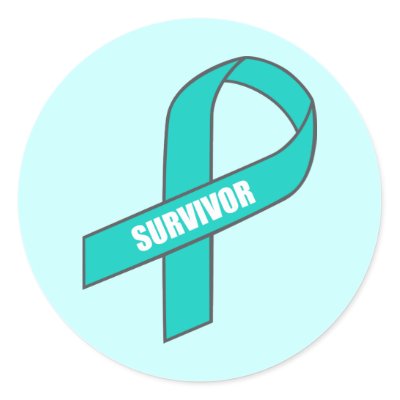
From the Yes Means Yes blog: “Mythcommunication: It’s Not That They Don’t Understand, They Just Don’t Like the Answer.”
Here Thomas talks about how we (especially women) have been socialized against saying the word “NO” as we’re taught that it’s rude. Women are socialized to care for others, especially men. To care for their feelings, their egos, their sense of rejection. I remember being terrified The Musician would feel rejected, and I didn’t want him to feel rejected because I liked him and it was a moral decision, not whether or not I fancied him. Although I even said NO several times, most of what I said sounded more like this: “I really can’t.” — “It wouldn’t be fair to your partner.” — “By asking me to do this you’re asking me to go against who I am.” — “I’ve just recently been very hurt and I’m not anxious to go there again.” — “I’m really attracted to you, but I just can’t. It’s against my agreement with my husband.”
Any of those things a person with integrity and who, you know, actually cared about the other human being, would understand those things as clear NOs. He understood, too. He just didn’t like the answer.
Onto Thomas’s post:
Long story short: in conversation, “no” is disfavored, and people try to say no in ways that soften the rejection, often avoiding the word at all. People issue rejections in softened language, and people hear rejections in softened language, and the notion that anything but a clear “no” can’t be understood is just nonsense. First, the notion that rape results from miscommunication is just wrong. Rape results from a refusal to heed, rather than an inability to understand, a rejection. Second, while the authors of the paper say that this makes all rape prevention advice about communicating a clear “no” pointless, I have a different take. Clear communication of “no” isn’t primarily going to avoid miscommunication — rather, it’s a meta-message. Clear communication against the undercurrent that “no” is rude and should be softened is a sign of the willingness to fight, to yell, to report.
….
Mythcommunication versus Predator Theory
If you read this blog, I’m going to tell you something you already know: rapes don’t happen by accident. We know that the vast majority of rapes are committed by the same relatively narrow sliver of the population, that they have multiple victims, that they avoid overt force, which is more likely to get them prosecuted, that they choose victims who can be bullied and isolated and that alcohol is their tool of choice.
One might read this and conclude that it doesn’t matter how women communicate boundaries, because rapists don’t misunderstand, they choose to ignore. That is pretty much Kitzinger’s takeaway, and I think from the perspective of moving the focus from what women do to what the rapists do that’s a useful thing to say. However, I think there’s more to it.
I’m no communications theorist, but communications are layered things. As we’ve seen, the literal meaning of a message is only one aspect of the message, and the way it’s delivered can signal something entirely different. Rapists are not missing the literal meaning, I think it’s clear. What they’re doing is ignoring the literal message (refusal) and paying very close attention to the meta-message. I tell my niece, “if a guy offers to buy you a drink and you say no, and he pesters you until you say okay, what he wants for his money is to find out if you can be talked out of no.” The rapist doesn’t listen to refusals, he probes for signs of resistance in the meta-message, the difference between a target who doesn’t want to but can be pushed, and a target who doesn’t want to and will stand by that even if she has to be blunt. It follows that the purpose of setting clear boundaries is not to be understood — that’s not a problem — but to be understood to be too hard a target.
(One might wonder what good that is, if the rapist just looks for other targets. But rapists are clearly rational and opportunistic, and if they have fewer targets who they can rape without repercussions, they’ll either have to rape less or risk getting reported and maybe prosecuted. )
I have no perfect solution. The only lasting answer is to change the culture.
Please read the rest of the post HERE.
“The only lasting answer is to change the culture.” This is exactly what we’re trying to do through the OWF.
May you find peace.
-_Q
 Olivia M. Grey lives in the cobwebbed corners of her mind writing paranormal romance with a Steampunk twist, like the Amazon Gothic Romance bestseller Avalon Revisited. Her short stories and poetry have been published in various magazines and anthologies, like SNM Horror Magazine and How the West Was Wicked. Ms. Grey also blogs and podcasts relationship essays covering such topics as alternative lifestyles, deepening intimacy, ending a relationship with love and respect, and other deliciously dark and decadent matters of the heart and soul.
Olivia M. Grey lives in the cobwebbed corners of her mind writing paranormal romance with a Steampunk twist, like the Amazon Gothic Romance bestseller Avalon Revisited. Her short stories and poetry have been published in various magazines and anthologies, like SNM Horror Magazine and How the West Was Wicked. Ms. Grey also blogs and podcasts relationship essays covering such topics as alternative lifestyles, deepening intimacy, ending a relationship with love and respect, and other deliciously dark and decadent matters of the heart and soul.
Read more by O. M. Grey on her blog Caught in the Cogs, http://omgrey.wordpress.com

